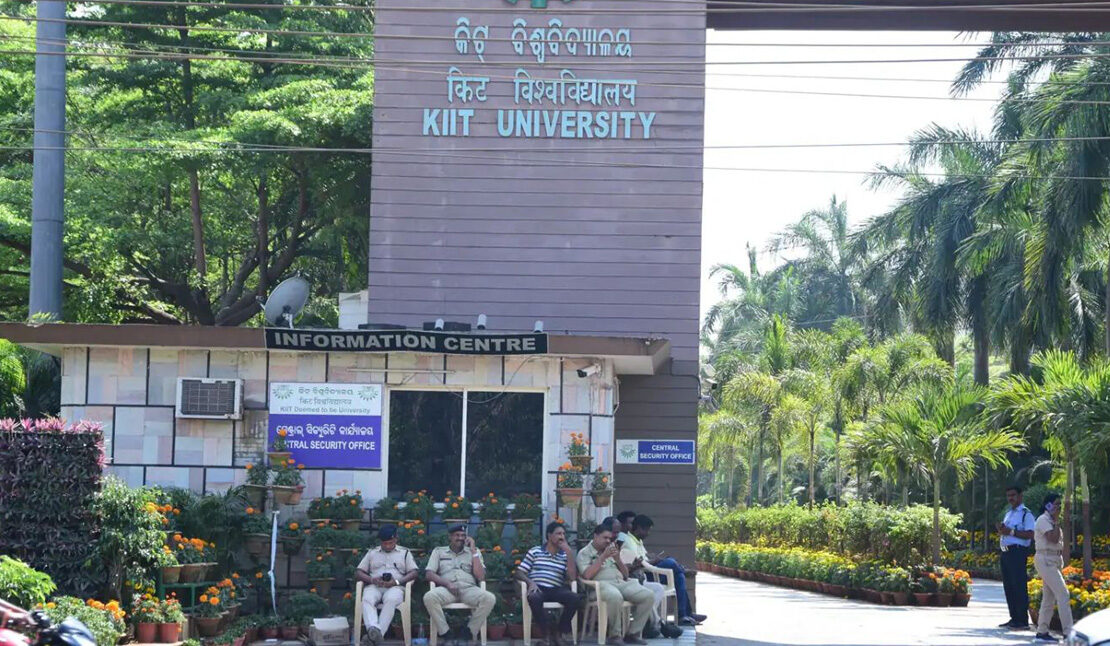KATHMANDU, May 13: Nepali students are spending billions of rupees to study at Kalinga Institute of Industrial Technology (KIIT) University in Bhubaneswar, Odisha, India.
As an educational hub in Odisha, the university offers undergraduate programs such as computer engineering and civil engineering. Students pay over Rs 1.9 million to complete their degrees. Currently, around 1,300 Nepali students are enrolled at KIIT University. Among them, about 11 students are completing a four-year course in computer engineering across various departments.
Each student pays over Rs 1.9 million, including hostel fees. Based on current estimates, Nepali students have already spent more than Rs 2.14 billion at KIIT University alone. Authorities have no record of how much Nepali students have paid to other universities in India. Besides KIIT, many Nepali students also study at various other Indian universities.
More than half of the Nepali students at KIIT have not obtained a No Objection Certificate (NOC). The university requests the NOC only during graduation. According to the Ministry of Education, only about 500 students currently enrolled at KIIT have secured the required NOC.
Nepali students demand security guarantees before returning to...

Nepali students do not need to obtain a No Objection Certificate (NOC) to study in India. However, due to growing concerns over student safety, authorities have started requiring students to obtain the NOC and pay university fees through official channels. India offers scholarships to Nepali students in various undergraduate fields such as engineering, science, technology, agriculture, business, management, and humanities. Despite these scholarship opportunities, many Nepali students increasingly choose to study in India at their own expense.
The Ministry of Education has not yet gathered data on the exact number of Nepali students studying in India. As more students opt for Indian institutions for higher education, the number of self-funded students continues to grow. This shift has also boosted the Indian economy.
Despite the seriousness of the situation, KIIT University has failed to take appropriate action, and the Government of Nepal has shown little attention. After Nepali students Prisha Shah and Prakriti Lamsal died under suspicious circumstances while studying at KIIT, the government did not extend any condolences to the students who had spent a significant amount of money on their education there.
The number of students heading to KIIT has declined over the past four years. When asked why this is happening, Ministry of Education spokesperson Shishir Kumar Sapkota stated that Nepali universities have not focused on improving their curricula. He added that students are choosing to study abroad due to the complex legal and managerial challenges within Nepal's education system.
"The government creates laws and provides as many resources as possible for higher education, but academic institutions must operate independently under those legal frameworks. The government does not interfere with academic, curriculum, or administrative matters, as autonomy is legally guaranteed," Sapkota explained.
Officials from the Ministry of Education explain that students choose to study abroad for various reasons. One reason is the attraction of scholarships, while another is the difficulty of studying here, prompting students to look for education opportunities abroad. "Some students are drawn to the challenges and issues related to our local standards, and others are influenced by the strong desires of their parents," the official said. However, Ministry of Education spokesperson Sapkota clarified that it is not the quality of local universities that drives students abroad, but rather academic and administrative challenges, along with issues like credit transfer, that push some students to seek education outside the country.
Professor Balchandra Luitel from Kathmandu University stated that significant changes are necessary to improve higher education in Nepal. He explained that the lack of autonomy has made Nepali universities less attractive to students. "It is becoming increasingly difficult to retain Nepali students in Nepal. Nepali students are losing faith in local universities due to government and political party interference, and universities cannot convince them," Professor Luitel said. He emphasized that universities are unable to free themselves from governmental control.
Following the suspicious death of Prakriti Lamsal at KIIT University, Kathmandu University called on students there to consider transferring to Kathmandu University and explore credit transfer options. Some students reached out, but their credit transfers were unsuccessful, and they ultimately chose to continue their studies at KIIT.
India, as a close neighbor sharing an open border with Nepal, has become an attractive destination for Nepali students due to its relatively lower educational fees compared to other third countries. Around 1,300 Nepali students currently study at KIIT University in India. Since Nepali students do not require an entry permit to travel to India, it has become the first choice for both school and higher education. Additionally, parents often send their children to India for education due to the linguistic, religious, and cultural similarities between the two countries.
Recent events have disrupted the long-established educational and social relations between Nepal and India. According to some students studying at KIIT University, the administration's behavior towards Nepali students has worsened these tensions. Thousands of Nepali students in India now face humiliation, with some even being forced to endure such conditions until death. This has raised concerns not only among parents but also among the students themselves. In response, the KIIT administration has started offering counseling to students. However, after the university reinstated Advik Srivastava, who was accused of harassment in the case of Prakriti Lamsal, to his previous position, Nepali students have become even more unsettled with the administration.






































